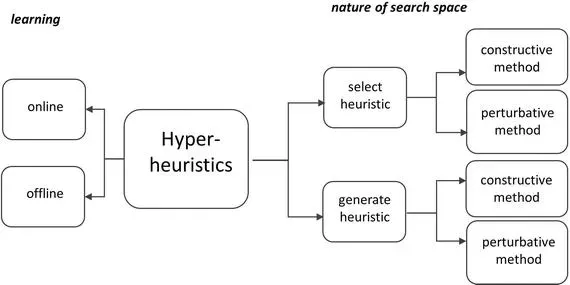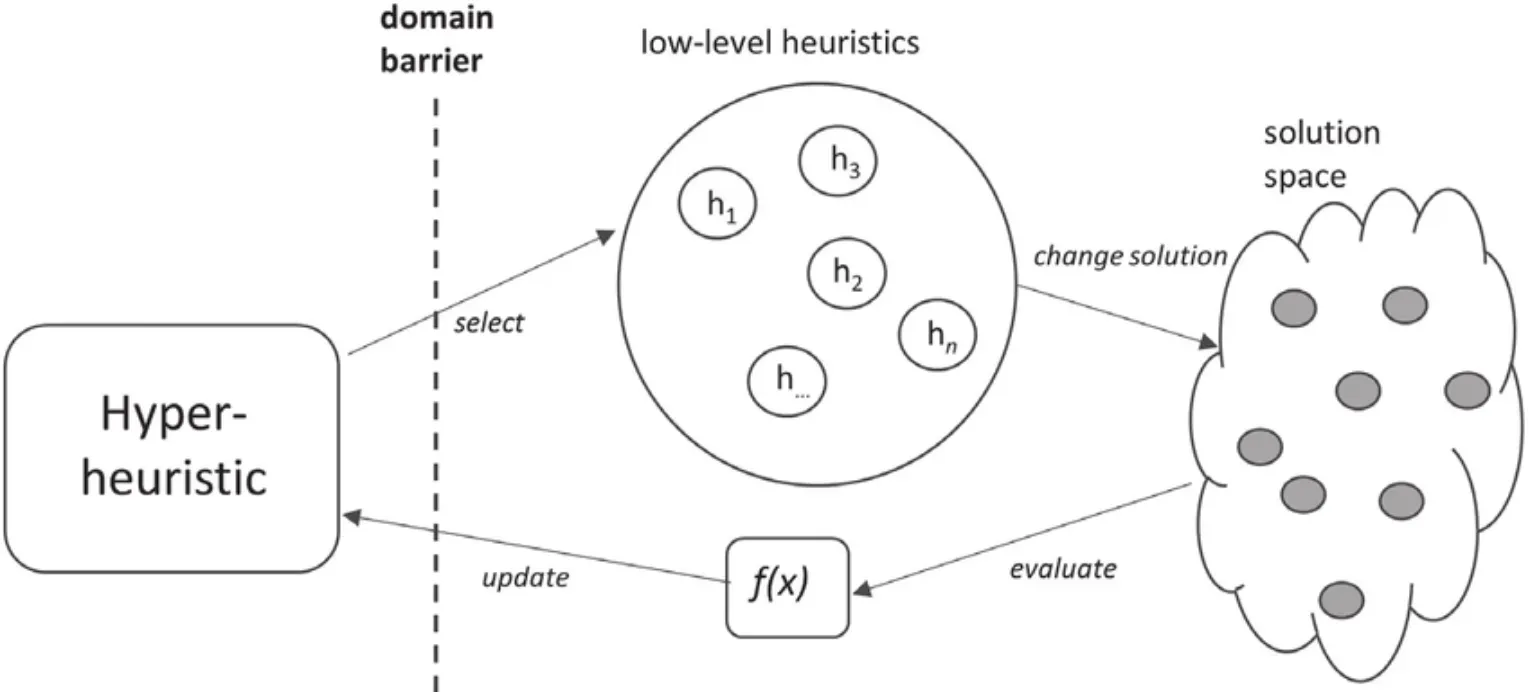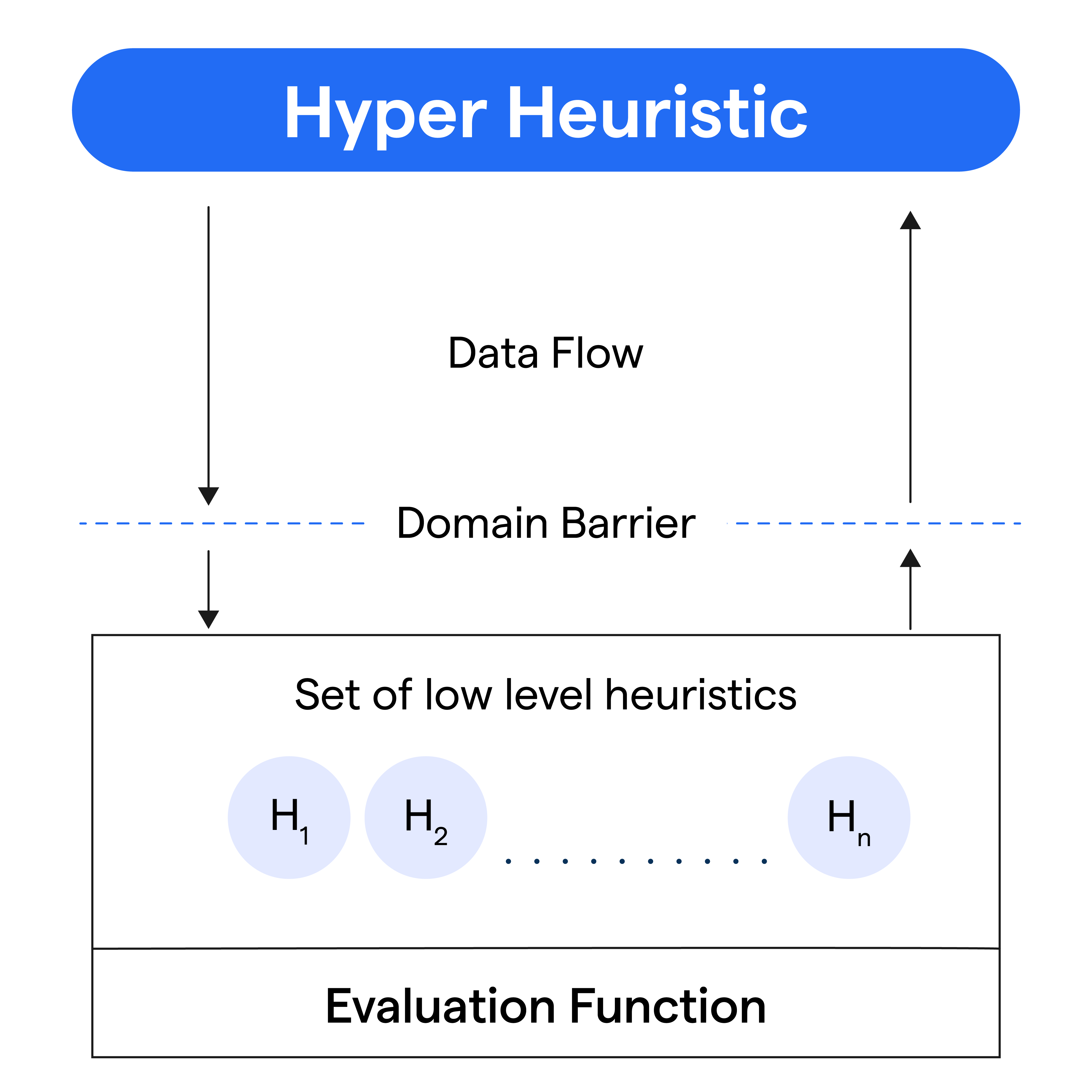What are Hyper-Heuristics?
Hyper-heuristics represent a cutting-edge approach in the field of problem-solving strategies. They automate the design of algorithms to create a problem-independent methodology, allowing solutions for a broader class of problems.
The concept of hyper-heuristics goes beyond just a single problem. With a higher level of abstraction, hyper-heuristics provide a set of heuristic methods that can solve complex, varied problems often beyond the scope of traditional algorithms.
Why should we care about hyper-heuristics? Well, their unique approach of automating problem-solving processes makes them especially useful in real-world applications. They're adaptable, versatile, and can increase efficiency in problem-solving tasks.
While it might seem complicated, the principle behind hyper-heuristics is pretty straightforward. They adapt an algorithm's framework depending on the problem's characteristics, making the solution more flexible and efficient.
Why Use Hyper-Heuristics?
Now let's examine why someone would want to use Hyper-Heuristics.
Generalizing Problem-Solving
Hyper-heuristics aim to raise the level of generality in problem-solving. They can work across different types of problems providing a more universal approach.
Adaptive and Scalable
Given their generative nature, hyper-heuristics are adaptive and can scale to varying problems sizes and types.
Solving Complex Problems
Hyper-heuristics can help in developing solutions for complex problems where conventional heuristics may not be as efficient.
Efficient Use of Resources
By operating on the heuristic space instead of the solution space, hyper-heuristics can lead to more efficient use of computational resources.
When to Use Hyper-Heuristics?
Knowing when to apply Hyper-Heuristics can optimize their efficacy.
Complex and Large-Scale Problems
Hyper-heuristics often shine in situations where the problem at hand is too complex or too large for traditional heuristics.
Lack of Problem-Specific Heuristics
Hyper-Heuristics are particularly useful when problem-specific heuristics are not available.
Adaptable Problem-Solving Required
When the problem parameters keep changing and adaptable problem-solving is required, hyper-heuristics can provide effective solutions.
Automating Heuristic Design
For situations where there's a need to automate the design of heuristics, resorting to hyper-heuristics can be a sound strategy.
Where are Hyper-Heuristics Used?
Let's discover different domains where Hyper-Heuristics are applied.

Logistics and Transportation
In the logistics and transportation sector, hyper-heuristics provide solutions for problems like routing, timetabling and scheduling.
Healthcare
In healthcare, hyper-heuristics are used for scheduling, resource allocation, and even personalized patient treatment plans.
Manufacturing and Production
Hyper-heuristics find applications in optimizing production schedules, improving product mix, and boosting overall manufacturing efficiency.
Academic Research
Hyper-heuristics are extensively studied in academic research to develop new algorithms, improve machine learning models, and further the understanding of heuristic and problem-solving methods.
Who Uses Hyper-Heuristics?
Now, let's delve into who all may need and benefit from Hyper-Heuristics.
Researchers and Academicians
Academic researchers and education professionals working in the fields of optimization, problem-solving, and AI might take advantage of the benefits of hyper-heuristics.
Logistic Managers
Professionals in supply chain management, logistics, and transportation often use hyper-heuristics for optimization of routes, schedules, and resource use.
Healthcare Professionals
Clinical administrators and health informatics professionals may use hyper-heuristics for effective resource allocation, patient scheduling, or designing personalized treatment plans.
Production and Operation Managers
Operation managers at manufacturing facilities use hyper-heuristics to improve production schedules, manage inventory, and boost overall operational efficiency.
How Does Hyper-Heuristics Work?
To round it all off, let's understand the functioning of Hyper-Heuristics.

Problem-Independent Approach
The Problem-Independence aspect of hyper-heuristics allows them to operate on a variety of problems, making them a flexible problem-solving tool.
Generation of Heuristics
Hyper-heuristics generate new heuristics or select existing heuristics to provide solutions for complex problems.
Learning Mechanism
Hyber-heuristics feature a learning mechanism that adaptively improves the search strategy based on prior experiences.
Incorporating Feedback
Hyper-heuristics also excel in incorporating feedback which helps to refine the selection or generation of their heuristics.
Frequently Asked Questions (FAQs)
What does the term 'hyper heuristic' mean and how does it function?
A hyper heuristic can be visualized as an automated mechanism for problem-solving. It works with low-level heuristics, selecting and amalgamating them to devise solutions for more challenging optimization problems. They function at an abstracted level, deploying strategic actions that dynamically modify and augment the performance of the primary heuristics.
What favorable outcomes can we expect by using hyper heuristics?
Utilizing hyper heuristics bring forth several perks such as automation, enhanced adaptability and amplified efficiency and accuracy comparing to traditional problem-solving methodologies. They have an inherent flexibility to manage assorted problem types and magnitudes without demanding problem-specific customization. This adaptability allows them to effectively leverage different heuristics' strengths, resulting in superior solution quality.
What stumbling blocks might one encounter while using hyper heuristics?
Even with their numerous advantages, hyper heuristics come with their fair share of challenges. The complexity involved in their design and implementation, along with computational costs, can be significant. Also, they could potentially lack clarity and decipherability, making them obscure for some users. Lastly, without careful design and validation, hyper heuristics could lead to overfitting.
In what precincts do hyper heuristics find application?
Hyper heuristics find their relevance and application in a variety of realms, particularly where efficient solutions for optimization problems are in demand. This happens to be the case in optimization problems, scheduling dilemmas, routing complexities, and machine learning tasks. They provide a versatile and effective answer to a broad array of problems.
How do we evaluate and ascertain the effective functioning of hyper heuristics?
The effectiveness of hyper heuristics is determined by relevant performance metrics such as the quality of solutions, computation time and their robustness. Experimental design and analysis, strengthened by statistical analysis techniques, aid in comparing hyper heuristics against other methodologies, subsequently leading to meaningful interpretations from the result data.


